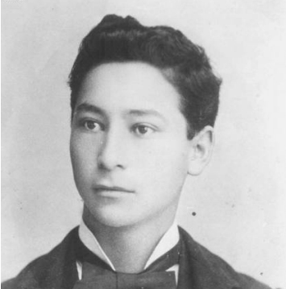To Wahilla Enhotulle
(To the South Wind)
O Wind, hast thou a sigh
Robbed from her lips divine
Upon this sunbright day—
A token or a sign?
Oh, take me, Wind, into
Thy confidence, and tell
Me, whispering soft and low,
The secrets of the dell.
Oh, teach me what it is
The meadow flowers say
As to and fro they nod
Thro’ all the golden day.
Oh, hear, Wind of the South,
And whispering softer yet,
Unfold the story of
The lone pine tree’s regret.
Oh, waft me echoes sweet
That haunt the meadow glen—
The scent of new-mown hay,
And songs of harvest men;
The coolness of the sea
And forest dark and deep—
The soft reed notes of Pan,
And bleat of straying sheep.
Oh, make me, Wind, to know
The language of the bee—
The burden of the wild
Bird’s rapturous melody;
The password of the leaves
Upon the cottonwood;
And let me join them in
Their mystic brotherhood.
This poem is in the public domain. Published in Poem-a-Day on November 16, 2024, by the Academy of American Poets.
“To Wahilla Enhotulle” [“To the South Wind”] appears in The Poems of Alexander Lawrence Posey (Crane Printers, 1910). In “Modernist Literary Studies and the Aesthetics of American Indian Literatures,” Robert Dale Parker, professor of English at the University of Illinois at Urbana-Champaign, wrote, “[Alex] Posey and Hen-toh [Bertrand N. O. Walker] merged local Native English with the Old Southwestern and late nineteenth-century regionalist immersion in colloquial speech, most famously realized by Mark Twain, Finley Peter Dunne’s Mr. Dooley newspaper columns, and the poems of Paul Laurence Dunbar, all antecedents of the Modernist preoccupation with literary perspective.”

